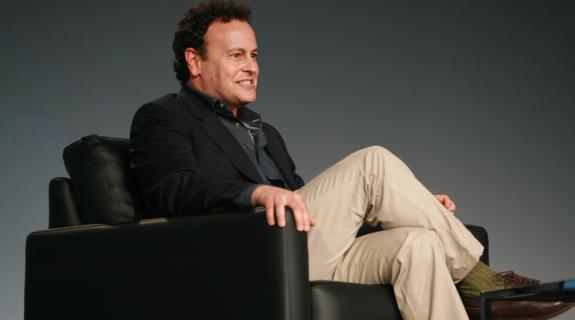“You know who wasn’t a great actor but everyone says he is? James Dean.”
The analogy from Mitch Hurwitz, said to TV Guide’s Michael Schneider at yesterday’s final session, “The Power of ‘Arrested Development’: In Conversation with Mitch Hurwitz,” was as darkly humorous yet cuttingly clear as one would expect from the creator of Fox’s off-beat comedy about the Bluths: Some things are remembered even more fondly when they die young.
Three seasons into its run, Hurwitz’s “Arrested Development” was canceled, in 2006. Its audience was small, but worshipful, and as time passed, the glowing reputation of the prematurely canceled show became the stuff of legend. Unlike James Dean, however, some legends can find new life.
Partnering with Netflix, Hurwitz found himself, seven years later, writing a new series of his beloved show on a platform that offered entirely new storytelling opportunities. “I was very mindful of the devotion of the fans and rewarding that devotion,” Hurwitz told Schneider, “but at the same time I wanted to take myself and them out of our comfort zone.”
Rather than follow the traditional linear episodic approach, Hurwitz concocted an anthology series, treating each episode like its own stand-alone pilot, revolving around the same series of events and period of time as the other episodes.
“I couldn’t skip the opportunity to explore what the storytelling possibilities are in a format people have ownership of the way people have ownership of a novel.”
As with a book, Netflix viewers can come and go to a show as they wish, watch the ending first, or binge-view all at once. Hurwitz wanted to create a storytelling experience that could be consumed by any of these methods, and still have meaning. It’s an approach that wasn’t even part of the equation when “Arrested Development” first launched in 2003.
“We didn’t even have iTunes when we launched this show,” Hurwitz said.
Tags:













































__twocolumncontent.jpg)











